Notebook
-
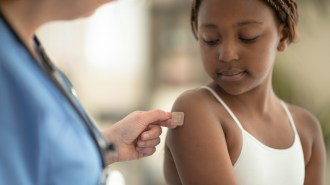 Health & Medicine
Health & MedicineRedefining ‘flesh-colored’ bandages makes medicine more inclusive
Peach-colored bandages label dark-skinned patients as outside the norm, says med student Linda Oyesiku. Brown bandages expand who gets to be normal.
By Sujata Gupta -
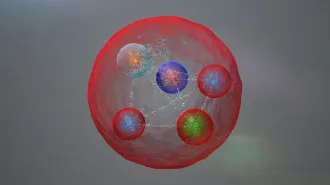 Physics
Physics50 years ago, scientists were on a quest for quarks
In the 1970s, physicists confirmed particles called quarks existed. Fifty years later, many kinds of quarks in many combinations have been discovered.
-
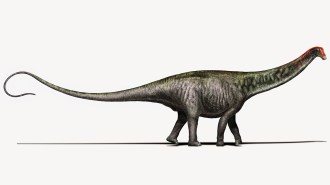 Animals
Animals50 years ago, scientists made the case for a landlubbing Brontosaurus
In 1971, a scientist argued for a landbound Brontosaurus instead of a swampy swimmer. Recent evidence comes from studies of its ancient environment.
-
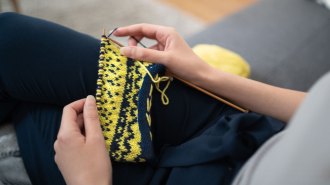 Math
MathHow one physicist is unraveling the mathematics of knitting
Understanding how knots influence textile properties could lead to bespoke materials.
-
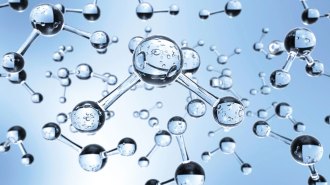 Physics
Physics50 years ago, scientists poked holes in the existence of polywater
In 1971, scientists were casting doubt on an anomalous form of water. Fifty years later, water’s odd properties are still mysterious.
-
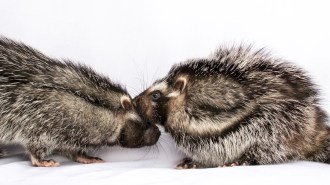 Plants
PlantsRats with poisonous hairdos live surprisingly sociable private lives
Deadly, swaggering rodents purr and snuggle when they’re with mates and young.
By Susan Milius -
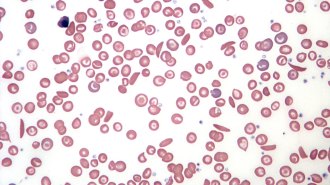 Health & Medicine
Health & Medicine50 years ago, urea showed promise as a sickle-cell treatment
In 1970, scientists found the first treatment for sickle-cell disease. 50 years later, they’re trying to cure it with CRISPR.
-
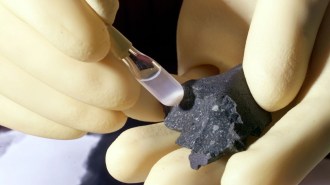 Planetary Science
Planetary Science50 years ago, scientists caught their first glimpse of amino acids from outer space
In 1970, scientists detected amino acids in a meteorite. Fifty years later, a variety of chemical ingredients for life have been found in other space rocks.
-
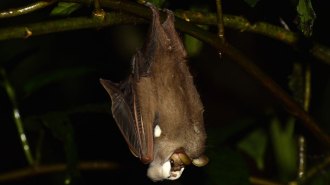 Animals
AnimalsA face mask may turn up a male wrinkle-faced bat’s sex appeal
The first-ever scientific observations of a wrinkle-faced bat’s courtship shows that, when flirting, the males raise their white furry face coverings.
By Susan Milius -
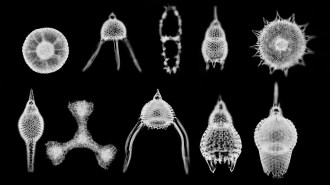 Earth
Earth50 years ago, scientists named Earth’s magnetic field as a suspect in extinctions
In 1970, researchers saw a link between magnetic pole reversals and extinctions. Fifty years later, scientists have uncovered more suggestive examples but no strong evidence of a direct link.lamb
-
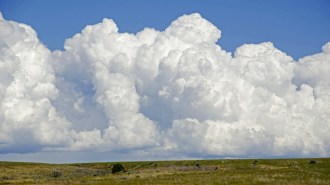 Microbes
Microbes50 years ago, scientists suspected microbes flourished in clouds
In 1970, scientists presented early evidence that microbes in clouds may be alive and kicking.
-
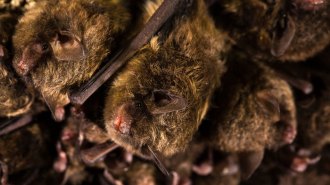 Animals
AnimalsWhy bat scientists are socially distancing from their subjects
Scientists are calling for a “hands-off” approach to research to decrease the chances of spreading the coronavirus to bats in North America.